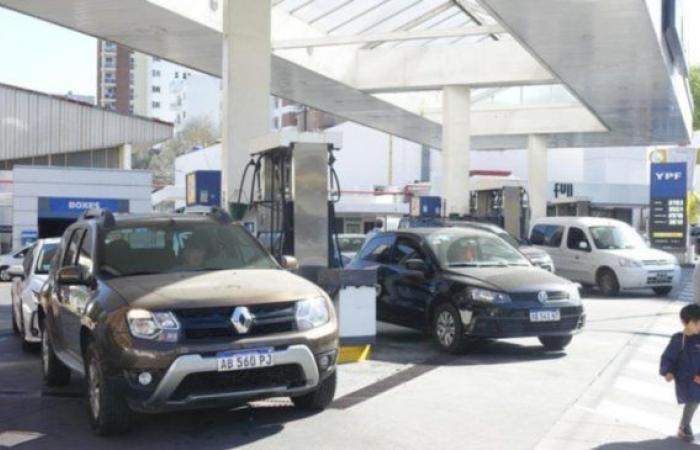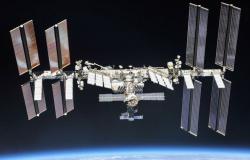The Government reversed the planned increase in electricity and gas rates in July, while it will not apply adjustments to the fuel tax either.
The objective of the measure is to prevent additional pressures on the cost of living.
The aim is to avoid increasing the pressure on the cost of living in that month and to ease up on the accelerator by imposing more costs on households that have suffered a sharp loss of purchasing power.
The intention is to take into account seasonality, that is, increased consumption due to cold weather, especially in gas and electricity.
The decision was made, in principle, only for the July rates with the intention of supporting the recovery of the purchasing power of the population, as announced by official sources to Noticias Argentinas.
The measure is in place for household consumption next month and, depending on the billing date, in principle most users would pay for it in August.
Earlier this month, the Government modified the maximum subsidized consumption caps and bonuses on wholesale electricity and natural gas prices for N2 (low-income) and N3 (middle-income) users in accordance with the Transition Period established by Decree No. 465/24.
The measure marks the beginning of a process to move from a generalized subsidy regime to a targeted one, in which the user can know the cost of kW of electricity and m3 of natural gas, which is identical for everyone.
Likewise, it may determine what assistance the State provides to users according to their ability to pay and that reaches up to a limited consumption limit through the recognition of a lower payment (bonus).
Taking an average bill for consumption of 250 Kw, the increase in the different categories will be: N1 (high income), a bill of $24,710 to $30,355 pesos (increase of 23%). In July, if the same consumption is maintained, the bill will be the same amount, that is, $30,355. This covers a universe of 1.5 million households.
N2 (low-income) goes from an average bill of $6,295 to $12,545,260 (99% increase). Comprises 1.9 million users.
N3 (average income) from $6,585 to $16,850 (156% increase) and includes 1 million clients.
In the case of gas rates, July consumption will not increase either. That is to say, the user will pay exactly the same as in June, as long as their consumption is the same.
For the current month, increases in the established gas tariff table of 9.2% for segment N1, 33% for N2 and 10% for N3 were established.
According to the Argentine Institute for Fiscal Analysis (IARAF), the new decree established that the inflation updates for the fourth quarter of 2023 and the first quarter of 2024 would be carried out starting on July 1.
Despite the postponement, the Ministry of Economy has defined a new monthly indexation mechanism starting in August.
The government does not want to jeopardize the slowdown in inflation, which could have been halted in June, so it will move forward with postponing increases in sensitive areas for consumers. Obviously, this implies greater future pressure on retail prices.
In the next few hours, the Executive Branch will publish a decree in which it will defer the increase in the ICL scheduled for next Monday, as happened in May and June. From July 1, the tax increase will result in a 4% increase in the final prices of gasoline and diesel, much less than the 18% expected, as confirmed by official sources.
INFLATION AND FISCAL SURPLUS
The decision is not only about ensuring the path of disinflation. The fiscal surplus achieved until May and the prospects of approval in Congress of the regulations that will allow greater collection (Ley Bases and fiscal package) give more breathing room to the Treasury.
Delays in government projects or a possible legislative failure would be compensated with, among other adjustments, higher increases in the ICL, as promised by the Ministry of Economy to the International Monetary Fund (IMF).
In any case, the oil companies -YPF, Axion, Shell and Puma- could transfer to the pumps the 2% corresponding to the monthly devaluation of the peso in order not to fall behind international prices. Since Javier Milei took office, fuel prices have jumped by more than 110% on average, so part of the freeze maintained by Alberto Fernández’s administration has been recovered.
“Companies are working with the government to increase prices as little as possible because improved macro stability is more useful to them than anything else,” explained an official who talks a lot with refiners.
On the other hand, fuels (naphtha and diesel) will have an increase next week, which will incorporate the monthly devaluation of the peso against the dollar (2%) and the tax increase (1 point more), so gasoline It will go up to at least $930 or $935 per liter in the City of Buenos Aires.
The remaining update of fuel taxes exceeds $100 per liter for gasoline and $80 for diesel, and will be applied throughout the second semester, starting in August, possibly in installments.
Regarding the real evolution of the tax, from 2018 to the present and what is left to recover all the months where there was a freeze, IARAF indicates that the tax maintained its real value between April 2018 and March 2021 at around $280 and $330 in constant pesos of June 2024. Then a process of decrease in its value begins due to the lack of nominal updating of the tax and the inflation of the period.
With these taxes, the Government seeks to recover tax revenues totaling 0.5% of the Gross Domestic Product (GDP) for the entire year, or the equivalent of 3 billion dollars, 10% of the fiscal adjustment proposed by Javier Milei.






